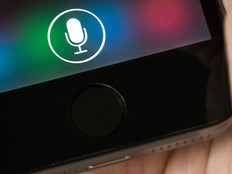FCC Votes to Review 22-Year-Old Ban on In-Flight Cell Phone Calls
A few weeks ago, the Federal Aviation Administration (FAA) issued guidelines that would finally allow travelers to use their mobile devices (smartphones, tablets, e-books, etc.) at all times during flights — even during takeoffs and landings. What the FAA rule-changes don’t cover, however, are voice calls made on cell phones. That particular issue falls under the province of the Federal Communications Commission (FCC).
So with the FAA taking the first steps toward change, it should come as no surprise that the FCC is now taking up the mantle of in-flight mobile device use. Last week, the commission voted to hear public feedback on whether the agency should lift the 22-year ban prohibiting cellular-based data use, calls and texts during a flight.
According to FCC chairman Tom Wheeler, modern technology effectively allows airplanes to transport their own cell towers in flight, which makes the current ban — put in place to “prevent interference with ground-based communication” — out of date. Last week, Wheeler indicated to the House Energy and Commerce subcommittee on communications that the aim is to lift the ban in 2014, according to USA Today. “This is the responsible thing to do. Where the rationale for the rule doesn't exist, the rule shouldn't exist.”
Although the FCC proposal to lift the ban would allow in-flight cellular service — that is, if the equipment to enable the service is onboard an airplane — it would still be up to each airline to decide whether to allow voice calls.
DOT and Congress Step into the Fray
The Department of Transportation (DOT), along with three members of Congress (two senators and a representative), took steps to extend the in-flight prohibition the same day the FCC voted to consider lifting the ban.
In a statement to CNN, Secretary of Transportation Anthony Foxx said his department would determine whether allowing cellular calls on planes is “fair to consumers.”
“Over the past few weeks, we have heard of concerns raised by airlines, travelers, flight attendants, members of Congress and others who are all troubled over the idea of passengers talking on cell phones in flight — and I am concerned about this possibility, as well,” Foxx said.
Meanwhile, senators Dianne Feinstein and Lamar Alexander have introduced legislation in the Senate to ban in-flight cellular voice calls, and Representative Bill Shuster has done the same in the House.
So if you’re concerned about having to spend hours listening to passengers talking on their cell phones, there’s still hope.
Not a Very Popular Idea
While the use of mobile devices in-flight has received broad support from the public, using those mobile devices to make phone calls is a completely different matter.
An Associated Press-GfK poll found that 48 percent of Americans are against passengers using in-flight voice calls. Only 19 percent of the people surveyed are in favor of allowing in-flight calls, the rest remain neutral or undecided.
The hostility toward in-flight mobile calls increases the more a person travels. According to the AP-GfK poll, 59 percent who’ve flown more than once in the past year object to in-flight phone calls while a whopping 78 percent of people who have flown four or more times in the last year say they aren’t in favor of the idea.
While the FCC has opened the door to the conversation of in-flight phone calls, even the FCC chairman seemed a bit cautious about the idea of having to listen to people talking on their phones during a flight.
“I'm the last person in the world who wants to listen to someone talking to me while I fly across the country,” Wheeler said to the congressional committee. “But we are the technical agency, and we will make the rules for the way the new technology works.”








